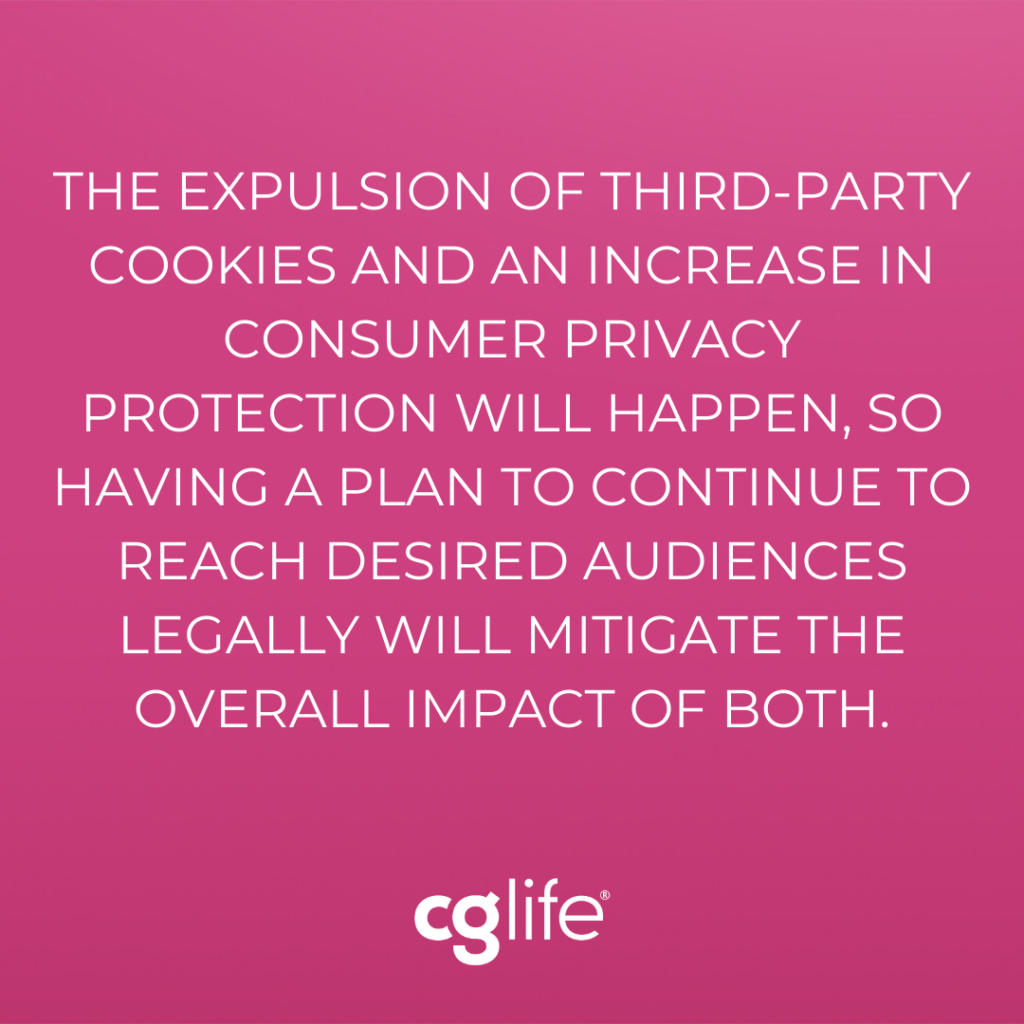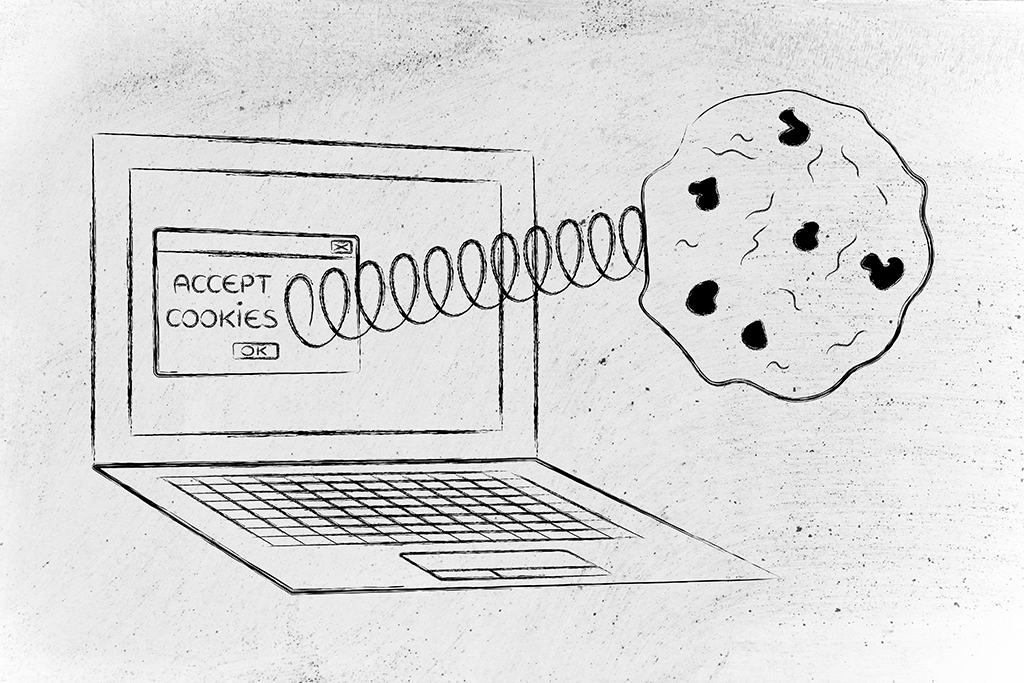The marketing world is ever-changing, and the digital advertising space is no exception. A timely and necessary way to stay ahead is to plan for the cookie-less world that is inevitably upon us, as Google will eliminate third-party cookies in the second half of 2024. With this elimination of third-party cookies, Google will introduce alternative tracking mechanisms like Google Topics and Sandbox. You may be asking yourself, “Why is this happening?” “What does this mean for my company?” or “How do I plan for this?” Well, we’re happy you’re here. Let’s jump into the background and implications of this decision.
Background and Privacy Updates

Third-party cookies are pieces of code that capture consumer information under a different domain than the site the visitor is using. This user information helps marketers understand which websites users frequent and where to place relevant ads. With growing consumer demands for privacy, browsers have responded by banning third-party cookies. In 2019, Firefox began banning third-party cookies by default, and in 2020, Apple’s Safari followed, though users can still turn them on if chosen. Next, in 2024, Google Chrome will no longer use third-party cookies and will not allow the option for users to turn third-party cookies back on.
One major caveat is that this does not affect first-party cookies. First-party cookies are stored under the same domain users visit and store information specific to that website, such as what you have in your shopping cart. First-party cookies are used by websites when users interact with them directly. Retargeting users based on how they use your site will still be possible, but there will be limits. Website owners cannot see data related to their visitors’ behaviors, which results in limitations for advertisers to leverage these cookies to create marketing strategies.
Impact for Marketers
The Google Chrome browser will not build an alternative tracking mechanism to replace third-party cookies but rather an alternative method. Google Topics was created to protect users’ information while allowing advertisers to continue promoting relevant content to people interested in what they offer. With Google Topics, a user’s browser determines what they will see. The browser will learn a user’s interests and categorize websites visited from 300 preselected topics. After collecting all the user’s behavior, Google will deliver those interests to relevant advertisers.
In addition to Topics, Google has generated another initiative for life after third-party cookies: the Privacy Sandbox. The Privacy Sandbox aims to create technologies that protect users’ online privacy, all while giving companies and developers tools to maintain successful online programs and businesses. This initiative will reduce cross-site and cross-app tracking to make a more private internet by creating standards for websites to access user information without compromising privacy. Improving privacy while providing businesses with the tools they need to succeed is vital to the future of the web. The most consistent feedback Google has received about the Privacy Sandbox is the need for businesses to test and evaluate this new technology. Developers are already testing the Privacy Sandbox, and Google expects to launch it by Q3 2023.
Privacy Policy Legislation

Compounding the elimination of cookies is new legislation to protect privacy. Since January 1, 2023, privacy laws have been enacted in California, Virginia, Colorado, Connecticut, and Utah.
The California Consumer Privacy Act (CCPA) went into effect on January 1, 2023, and will regulate consumer data and previously exempt human resources data. These data protection requirements limit the processing of sensitive personal information of California employees, job applicants, and contractors. The CCPA also applies to businesses that process personal information of California residents and either gross $25M in annual revenue; buy, sell, or share personal information of >100,000 consumers; or derive >50% of annual revenue from selling or sharing consumers’ personal information.
The Virginia Consumer Data Protection Act similarly applies to companies that control or process personal data of >100,000 residents per year or control or process personal data of 25,000 consumers and get 50% of gross revenue from selling or sharing personal data. These are the first two privacy acts to go into effect and will set precedents for others.
What to Do Next
First and foremost, talk to your agency and advertising partners. The expulsion of third-party cookies and an increase in consumer privacy protection will happen, so having a plan to continue to reach desired audiences legally will mitigate the overall impact of both.
Tips for a cookie-less world:
- Ensure that any partners and vendors being used are up-to-date and compliant with changes in the marketplace.
- Test first-party data solutions and contextual tactics that don’t rely on third-party cookies.
- Use alternative ID solutions that are scalable and provide a privacy-friendly way to target users individually rather than relying on solutions like Google’s Topics or Sandbox.
- Leverage second-party data that direct publisher relationships own. Building key partnerships will be an important strategy for 2023.
- Focus on growing first-party data by offering value exchange incentives.
- Allocate some budget to cookieless awareness campaigns to reach new audiences.
As always, CG Life is here to help with any of your organization’s needs, so drop us a line here!
